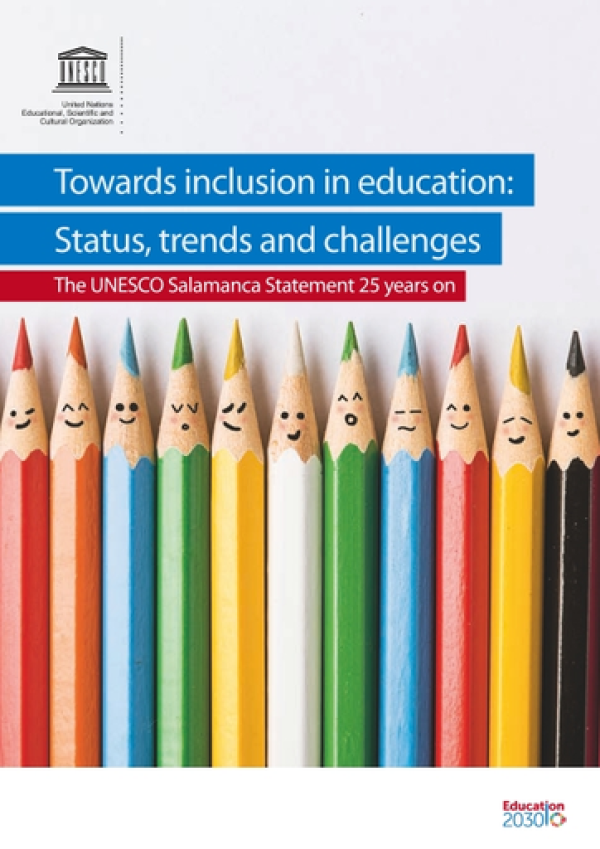- Se connecter ou s'inscrire pour poster un commentaire
- 248 vues
The 2030 Agenda for Sustainable Development focuses on leaving no one behind. This publication aims to inform thinking and practice globally. It provides an overview of the progress and challenges since Salamanca, as well as guidance and suggestions to help countries minimize barriers to learning and ensure the genuine inclusion of all learners.
All children should learn together, wherever possible, regardless of any difficulties or differences they may have.' These are the principles adopted at the UNESCO World Conference on Special Needs Education held in Salamanca, Spain. UNESCO's publication Towards inclusion in education: status, trends and challenges: the UNESCO Salamanca Statement 25 years on looks at the past, present and future since the Conference in Salamanca to guide the further development of inclusive national policies and practices.
The COVID-19 pandemic is widening learning inequalities and affecting marginalized children and youth the most. According to UNESCO's 2020 Global Education Monitoring on Inclusion and Education, about 40% of low- and lower-middle-income countries have not supported learners at risk of exclusion during this crisis, such as the poor, linguistic minorities and learners with disabilities. UNESCO's projections estimate that about 24 million learners from pre-primary to tertiary education are at risk of not returning to school following the COVID-related school closures. Addressing inclusion and equity must be a key component of plans to expand distance learning while schools are closed, and to prepare for school reopening. ‘We need to build education systems that make diversity a strength, and where every learner matters equally'" says Mel Ainscow, Emeritus Professor at the University of Manchester and drafting coordinator for the publication.
With this publication, UNESCO seeks to support Member States in their efforts to find more effective ways of addressing barriers to progress towards more inclusive education systems. The publication recommends actions to strengthen national policies, curriculum, assessment, school evaluation, teacher education and budgets. ‘Inclusive schools are the most effective means to combat discriminatory attitudes and gender-based discrimination, to create welcoming communities, to build an inclusive society and to achieve education for all', says Florence Migeon, Programme Specialist for Inclusion in Education at UNESCO. But 25 years after the adoption of the Salamanca Statement, ensuring each learner has an equal opportunity to receive and benefit from an education remains a major challenge worldwide.






